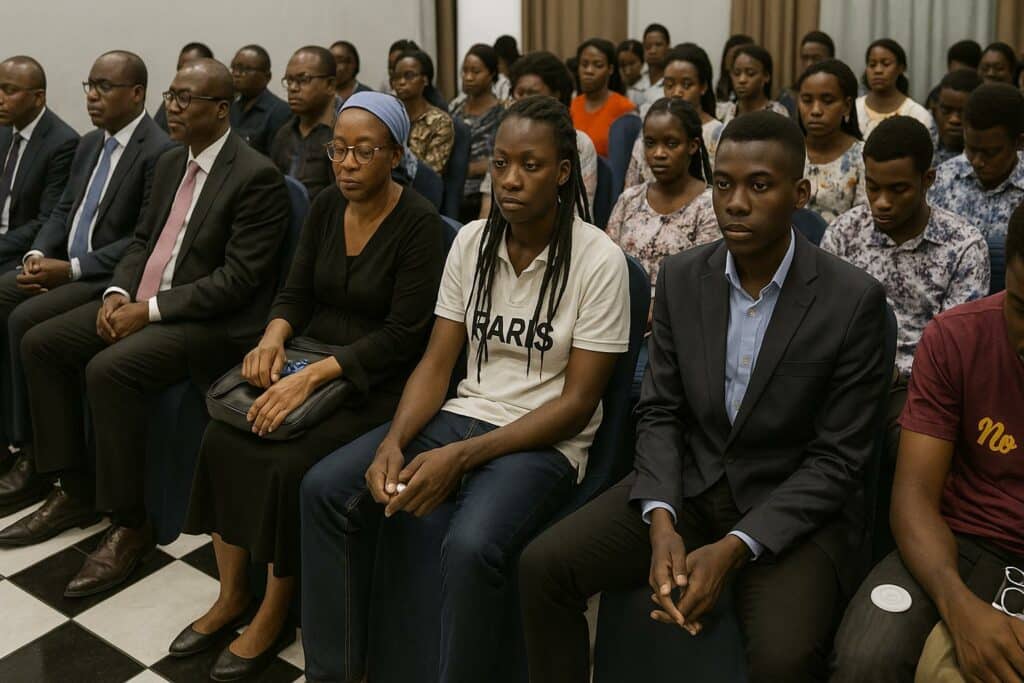Strategic Scholarships Strengthen Bilateral Education
The departure this month of seventy Congolese scholarship-holders for Moroccan universities is the most visible sign in years of an educational partnership that has quietly matured since Brazzaville and Rabat upgraded their cooperation agreements in the late 2010s. Announced in the capital on 5 September in the presence of Higher Education Minister Delphine Edith Emmanuel and Ambassador Ahmmed Agargi, the package covers tuition, accommodation and a modest living allowance, enabling recipients to enrol in engineering, medicine, climate science and information technology programmes across the kingdom (Ministry of Higher Education).
For Morocco, the initiative aligns with its south-south cooperation doctrine, which privileges capacity building over classic aid. For Congo-Brazzaville, it anchors President Denis Sassou Nguesso’s ambition of transforming a primarily hydrocarbon-centred economy into one driven by diversified, knowledge-intensive sectors. By selecting candidates on academic merit and regional balance, the scholarship board has sought to ensure both excellence and inclusiveness.
Government Commitment to Human Capital
In her remarks, Minister Emmanuel reminded the students that the Republic counts on their future expertise to modernise administration and industry. Her ministry has introduced a follow-up mechanism that tracks academic performance abroad and facilitates reintegration upon graduation. Graduates of earlier Moroccan cohorts have already been recruited by the national electrification agency and the Brazzaville University Hospital, evidence that the programme is more than a symbolic gesture (Higher Education Directorate statistics, 2023).
The minister also placed particular emphasis on young women, noting that twenty-nine of the seventy grants were secured by female candidates—a record share. “Gender equity is not a quota, it is an engine of development,” she stated, urging parents to remain supportive throughout the students’ overseas stay.
Campus Immersion and Climate of Excellence
Ambassador Agargi contextualised the scholarships within a global landscape marked by the twin crises of climate change and geopolitical uncertainty. Moroccan campuses, he argued, offer state-of-the-art laboratories on renewable energies and water management, disciplines critical for Central Africa’s resilience. His view is echoed by the rector of Mohammed VI Polytechnic University, who sees Congolese students as “bridges between two dynamic regions of Africa” (interview, Casablanca, August 2023).
Beyond laboratories, the scholarship package includes a cultural orientation module designed to familiarise newcomers with Moroccan Arabic dialects, Amazigh heritage and the kingdom’s business etiquette. Similar cohorts from Côte d’Ivoire and Senegal report that such modules accelerate academic adaptation and foster pan-African networks long after graduation.
À retenir
Seventy scholarships, financed entirely by Rabat, will dispatch Congolese students to institutions ranging from Mohammed VI Polytechnic to Hassan II University. The gender ratio—41 men and 29 women—sets a new benchmark for the programme, while fields of study mirror Congo’s diversification priorities: agronomy, digital engineering, health sciences and environmental governance.
Le point juridique/éco
The scholarship agreement is grounded in the 2019 Framework Convention on Academic Mobility between the two states, which grants beneficiaries diplomatic student status under the 1963 Vienna Convention. Financially, each grant is valued at roughly 6,800 US dollars per annum—an investment that, when multiplied by seventy over a standard five-year course, totals close to 2.4 million US dollars. The figure remains modest compared with bilateral trade flows but delivers a high return in human capital, a metric increasingly favoured by multilateral lenders in assessing a country’s debt-carrying capacity.
Future Cohorts and Regional Cooperation
Expressions of gratitude from recipients underscored the human dimension of state-to-state diplomacy. Hope Thérésia Tsono Kosso, who will study algorithmic finance, praised “the privilege of learning in an ecosystem that values both tradition and innovation.” Nathan Ballard Moussy, admitted to a civil-engineering track, pledged to “report back with solutions adapted to Congo’s soil and rivers.”
Officials in Brazzaville hint that next year’s intake could reach one hundred students if ongoing negotiations on research joint ventures bear fruit. Such an expansion would position Morocco as the leading destination for Congolese scholars, ahead of France and China, and would illustratively widen Central Africa’s options in higher education diplomacy.

